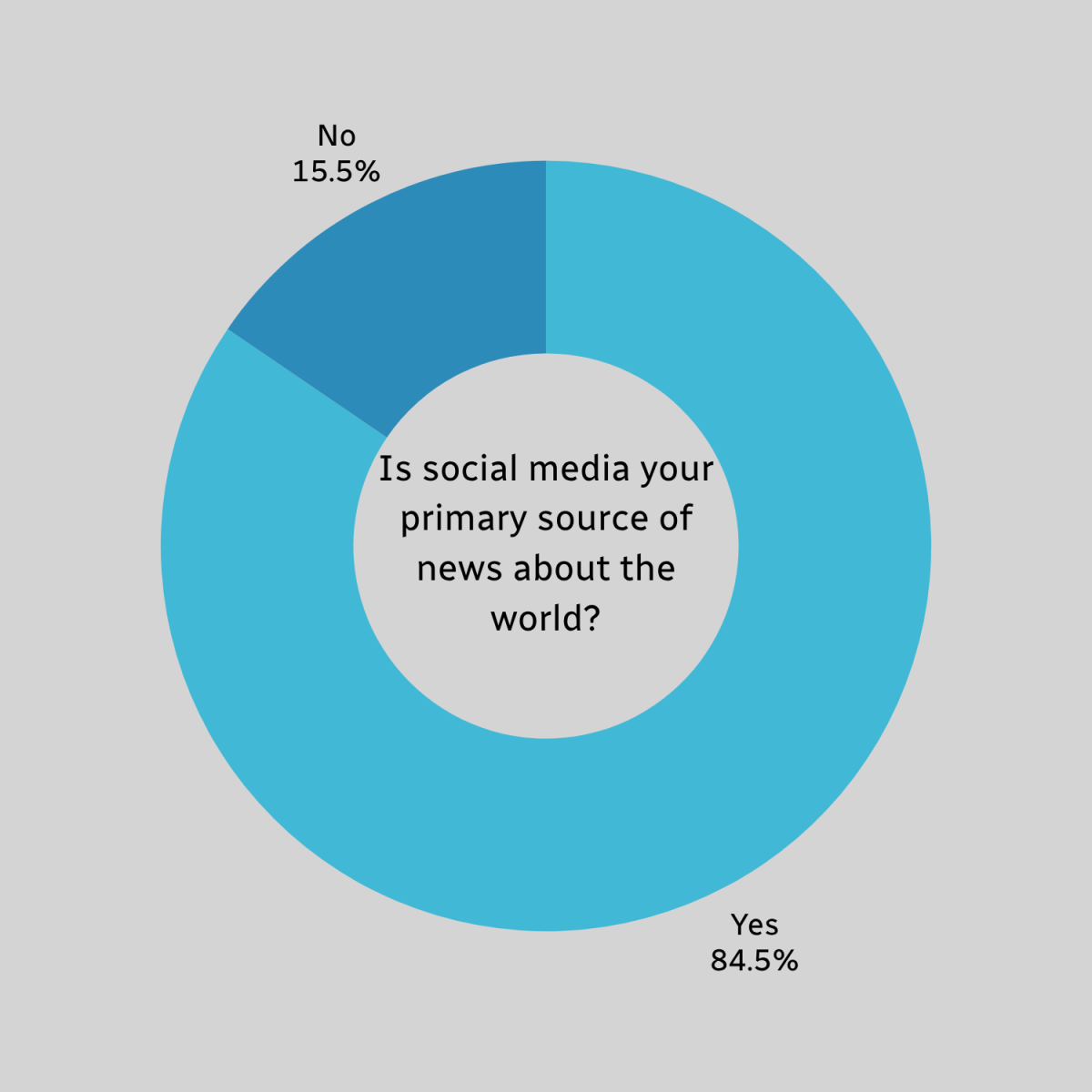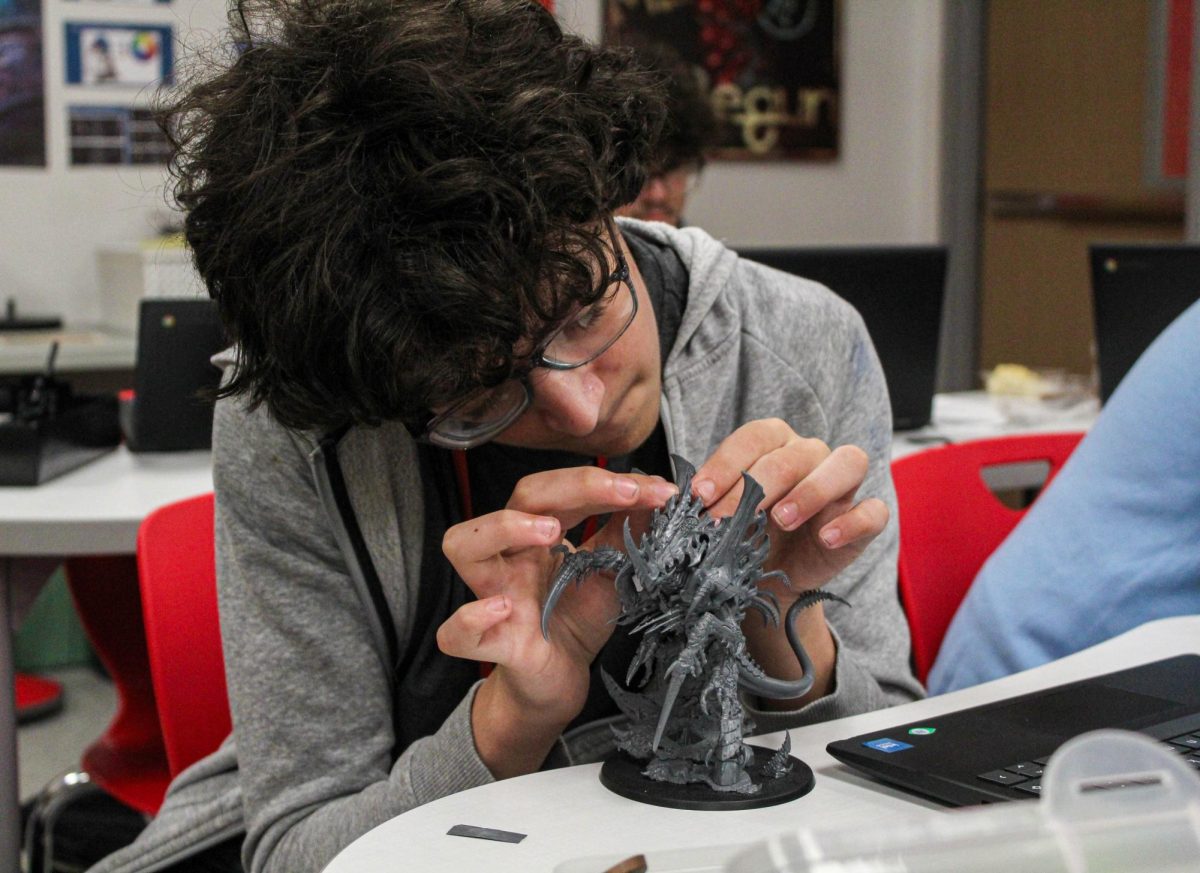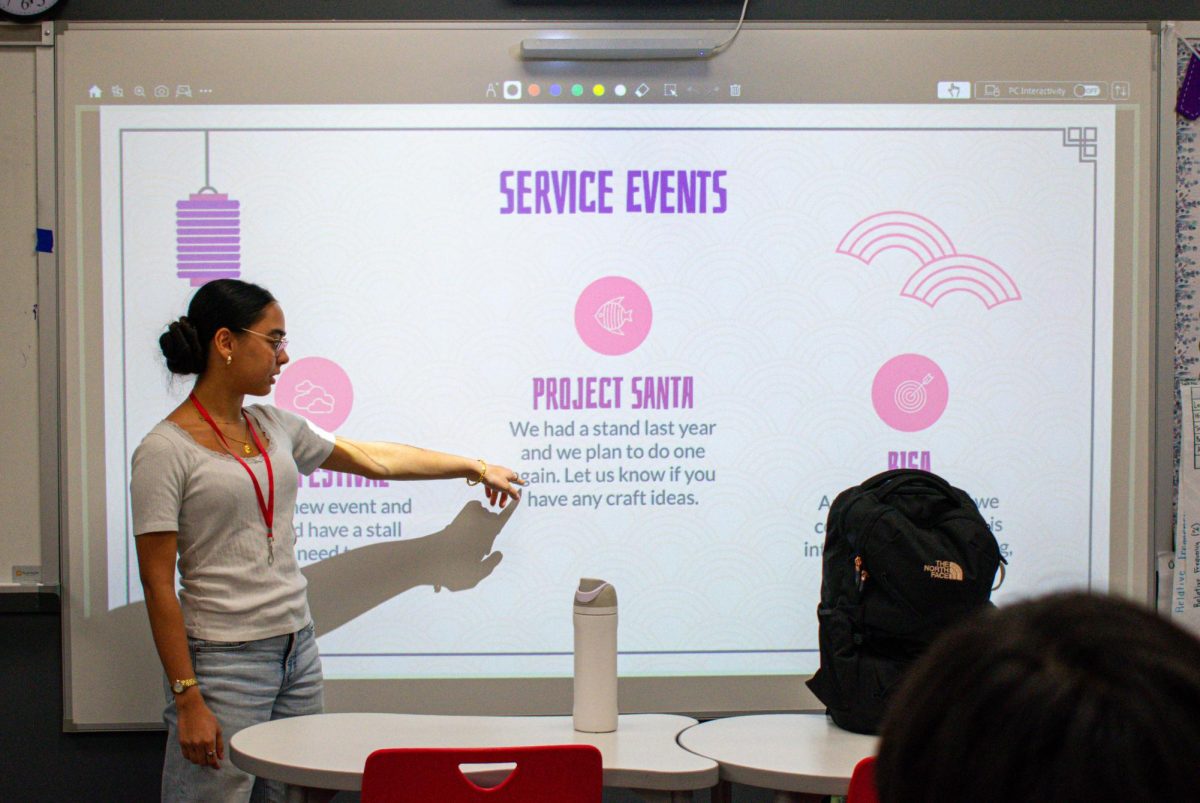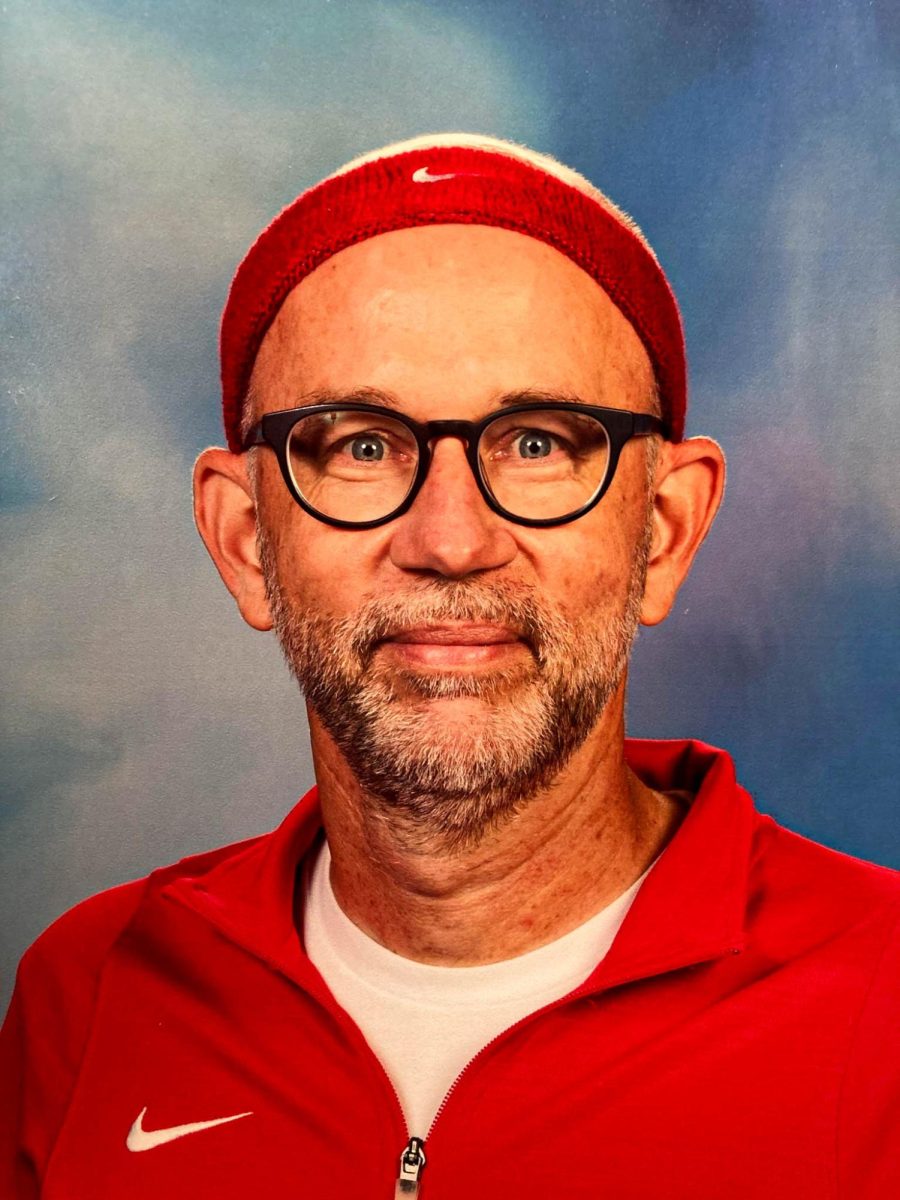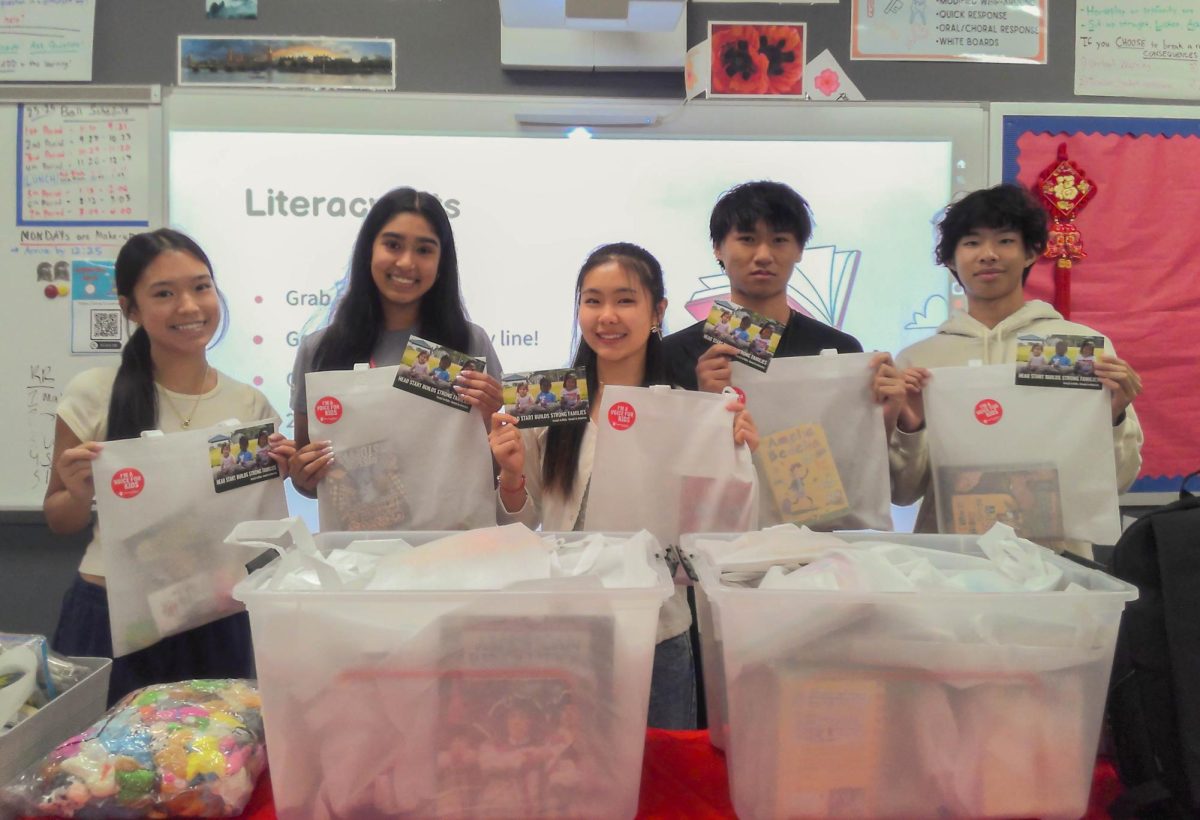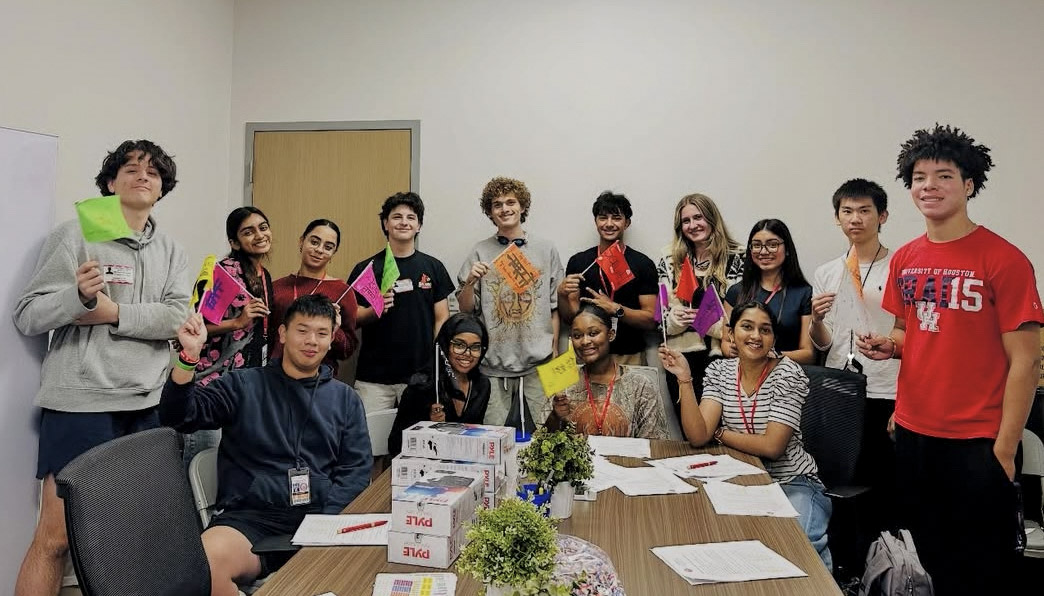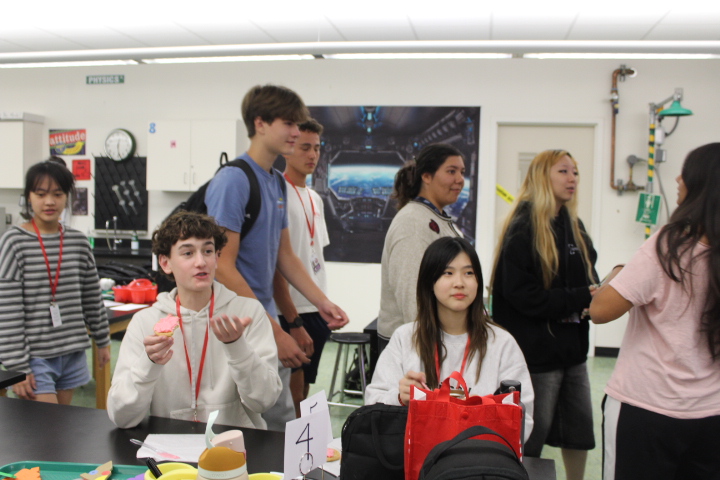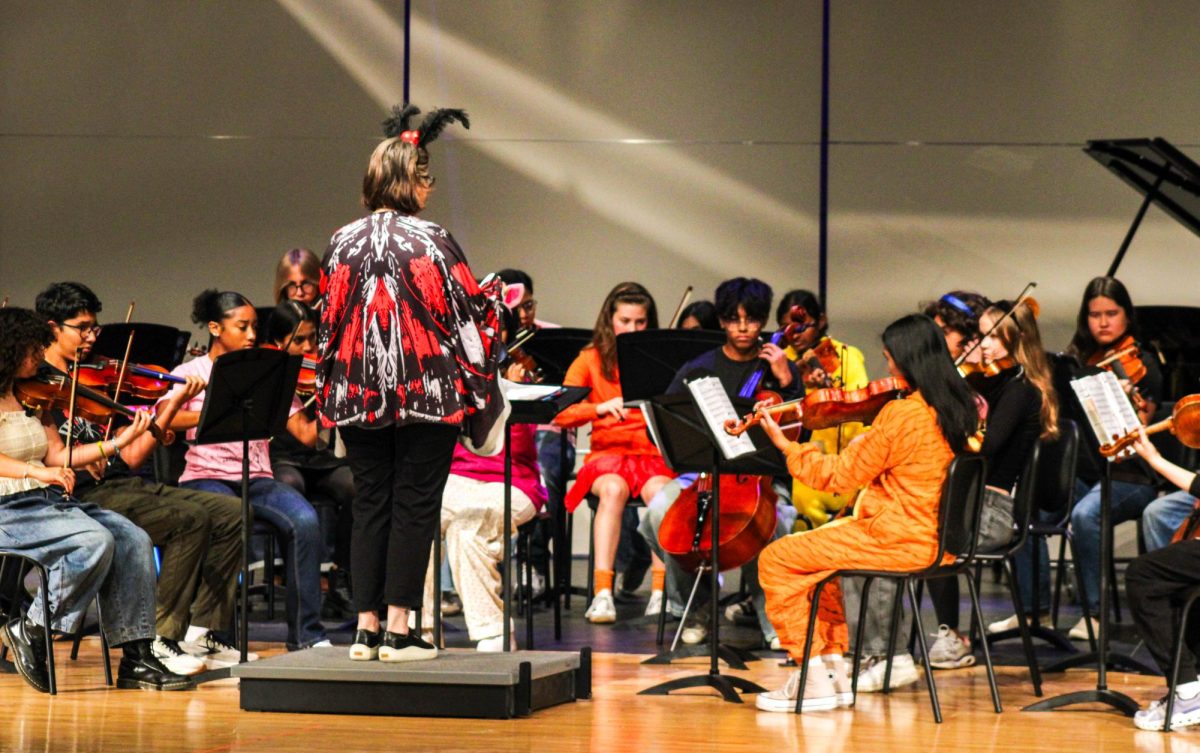When’s the last time you heard about a current event?
Perhaps it was when Charlie Kirk died, or perhaps it was the truce in Gaza. Or maybe it was neither of those things — just something random you scrolled past.
But chances are, it wasn’t from a news site.
Not CNN, not FOX, not ABC, not any news site. Especially if you’re Gen Z or Gen Alpha, the reality of our world as it is now is that the news of our era is defined by social media and artificial intelligence.
It started with the first social media platforms, like MySpace, Facebook and Twitter (now X). People would emerge and speak about current events on these platforms in real time as they happened. While in the early days this wasn’t very efficient and fell short to professional news reports, times have changed.
I know in my own experience that my daily routine for finding news could be called “makeshift.” My own normal system of looking at news is surfing the internet, with apps like Instagram over traditional news sites like the New York Times.
This is more evidence that our world is becoming more social media/AI centric —from small things like a train line in California to the outbreak of world wars. Just think — did you hear about the U.S. bombing of Iran from newspapers, news sites or a post on social media? I’d say that it’s probably the latter. Even our school displays the same notion. Out of 84 students polled, 71 students claimed that social media was their main source of news.
The next question you might ask is why does this matter? Why does it matter to me, a random person, that social media and AI are having such a large role? (For example our own President’s post of Democrat senators in memes generated by AI).
The core thing to understand is that these things promote misinformation and confusion. With apps and tools that allow people to post anything, how can we tell what’s true and false? When used incorrectly, these things are tools for disinformation. What’s even worse is that this is present all over the world, and can be seen anytime, perhaps when the average X user begins to complain at the first sight of a headline they don’t like.
And sometimes the headline isn’t even true.
So this leads to elaborate levels of disagreement, culminating in our own division.
If you still don’t believe me, I’d ask you to look further. In September, Nepal’s federal government banned over 20 social media platforms, and Generation Z rioted. Protests spread across the country, rallying behind the anime flag of the Straw Hat Pirates, a fictional pirate group from “One Piece.” The young protestors burned the government to the ground, all while platforming on social media to communicate. These were all reactionary decisions based on social media.
When the government fell, they carried on with their use of social media. The young group of insurgents utilized the app Discord, which the US administration currently views as “a breeding ground for extremism,” to act as a provisional government — a revolution in the use of social media. Using Discord, the Gen Z protestors utilized a poll system as well as call-based debates to elect a new leader, Sushila Karki — the country’s first female prime minister and the current interim leader of Nepal. Just how crazy is that? An entire nation’s leader elected by social media.
The line between what is online and offline with news has never been thinner, and that’s not necessarily a bad thing. It just means we have to change our perception of how we deal with news. More social media and AI means more misinformation. It’s our job to learn how to deal with that. That message needs to go out to all — from the small kids playing with iPads in their living rooms to the long-retired, aging generation of paper newsreaders. While some social media platforms have implemented systems like fact checkers, this has not yet spread to all. It is now the job of both these companies and ourselves to make sure that misinformation does not continue to spread in this way.
We need to change how we perceive information. Otherwise, we risk the downfall of our own society as the misinformation generated by social media pins us against each other.


